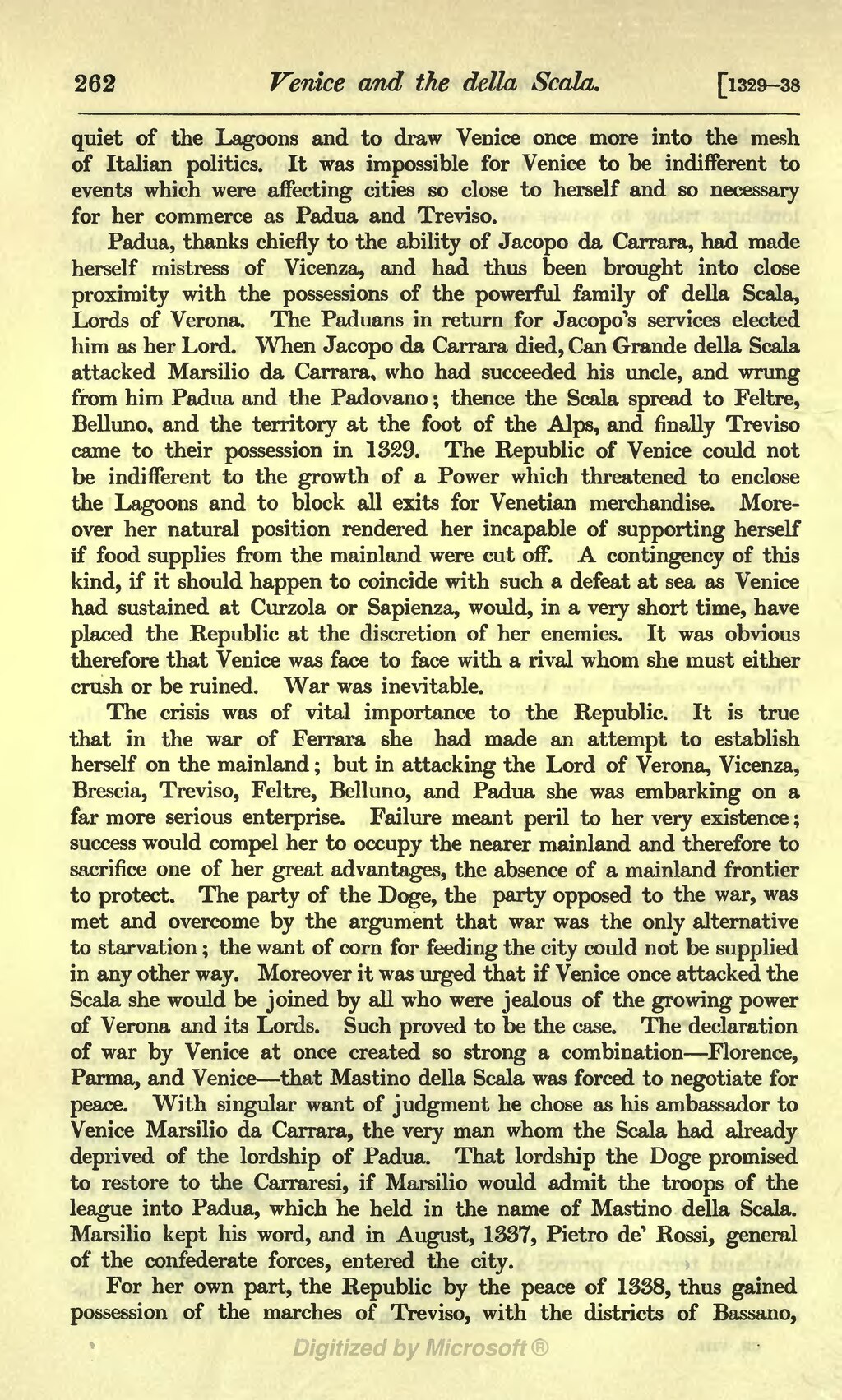quiet of the Lagoons and to draw Venice once more into the mesh of Italian politics. It was impossible for Venice to be indifferent to events which were affecting cities so close to herself and so necessary for her commerce as Padua and Treviso.
Padua, thanks chiefly to the ability of Jacopo da Carrara, had made herself mistress of Vicenza, and had thus been brought into close proximity with the possessions of the powerful family of della Scala, Lords of Verona. The Paduans in return for Jacopo's services elected him as her Lord. When Jacopo da Carrara died, Can Grande della Scala attacked Marsilio da Carrara, who had succeeded his uncle, and wrung from him Padua and the Padovano; thence the Scala spread to Feltre, Belluno, and the territory at the foot of the Alps, and finally Treviso came to their possession in 1329. The Republic of Venice could not be indifferent to the growth of a Power which threatened to enclose the Lagoons and to block all exits for Venetian merchandise. Moreover her natural position rendered her incapable of supporting herself if food supplies from the mainland were cut off. A contingency of this kind, if it should happen to coincide with such a defeat at sea as Venice had sustained at Curzola or Sapienza, would, in a very short time, have placed the Republic at the discretion of her enemies. It was obvious therefore that Venice was face to face with a rival whom she must either crush or be ruined. War was inevitable.
The crisis was of vital importance to the Republic. It is true that in the War of Perrara she had made an attempt to establish herself on the mainland; but in attacking the Lord of Verona, Vicenza, Brescia, Treviso, Feltre, Belluno, and Padua she was embarking on a far more serious enterprise. Failure meant peril to her very existence; success would compel her to occupy the nearer mainland and therefore to sacrifice one of her great advantages, the absence of a mainland frontier to protect. The party of the Doge, the party opposed to the War, was met and overcome by the argument that war was the only alternative to starvation; the want of corn for feeding the city could not be supplied in any other way. Moreover it was urged that if Venice once attacked the Scala she would be joined by all who were jealous of the growing power of Verona and its Lords. Such proved to be the case. The declaration of war by Venice at once created so strong a combination-Florence, Parma, and Venice-that Mastino della Scala was forced to negotiate for peace. With singular want of judgment he chose as his ambassador to Venice Marsilio da Carrara, the very man whom the Scala had already deprived of the lordship of Padua. That lordship the Doge promised to restore to the Carraresi, if Marsilio would admit the troops of the league into Padua, which he held in the name of Mastino della Scala. Marsilio kept his word, and in August, 1337, Pietro del Rossi, general of the confederate forces, entered the city.
For her own part, the Republic by the peace of 1338, thus gained possession of the marches of Treviso, with the districts of Bassano,
